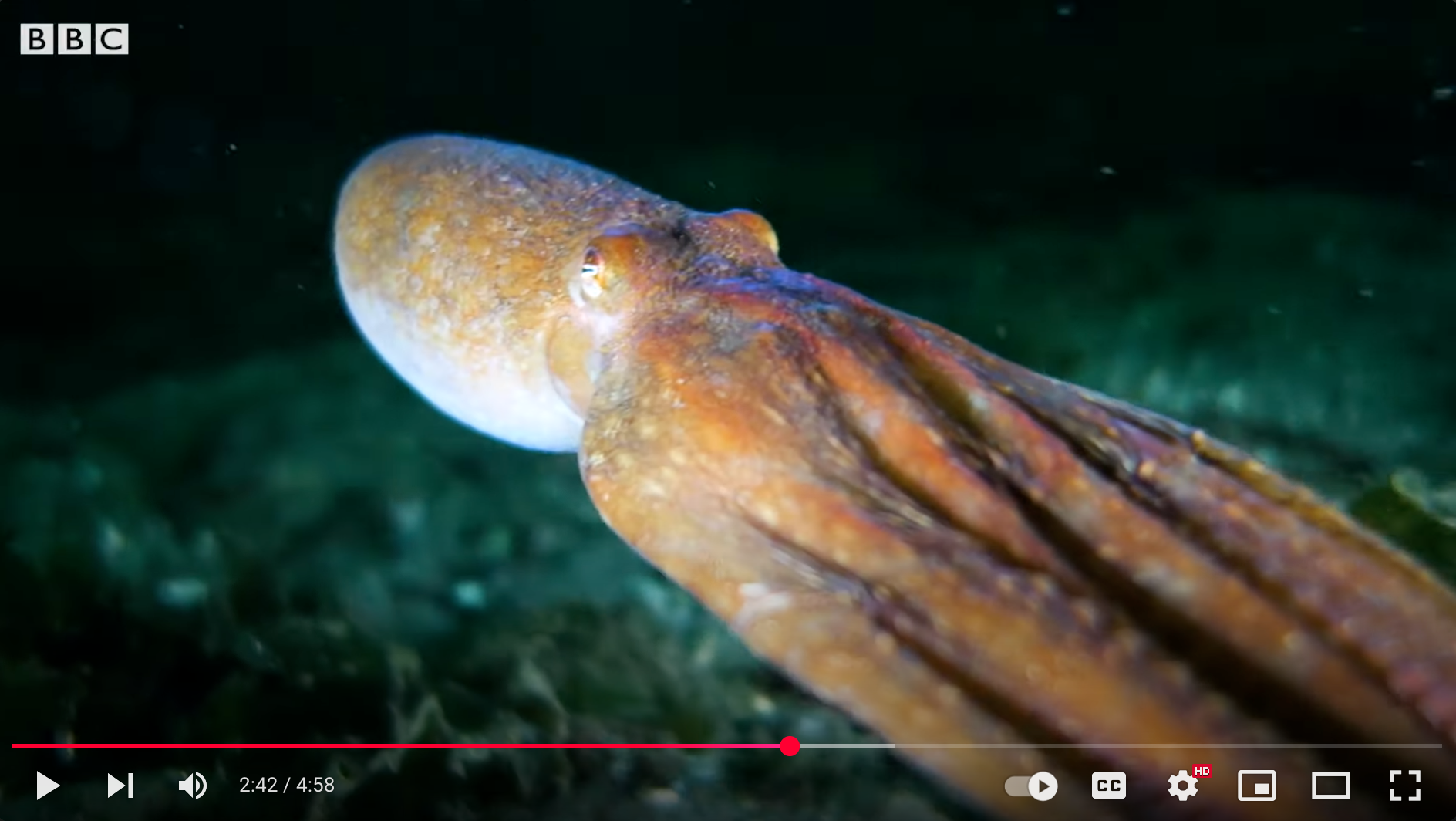
Watch this video about octopuses and their three hearts.
The following activities and questions are designed to help your students use their noticing skills to move through the poem and develop their thinking skills so they understand its meaning with confidence, using what they’ve noticed as evidence for their interpretations. Read more about the framework upon which these activities are based.
-
Warm-up: Watch this video about octopuses and their three hearts. After watching the video, what is one thing that you have learned? What questions, if any, do you still have?
-
Before Reading the Poem: What would you do with three hearts? How might the human experience be different with more than one heart? Join with a partner or small group and share your ideas.
-
Reading the Poem: Silently read the poem “once a marine biologist told me octopuses have three hearts” by Denice Frohman. What do you notice about the poem? Note any words or phrases that stand out to you or any questions you might have.
-
Listening to the Poem: Enlist two volunteers and listen as the poem is read aloud twice. Write down any additional words and phrases that stand out to you. Or you may watch this video of the poet reading the poem.
- Small Group Discussion: Share what you noticed about the poem with a small group of students. How might this poem relate to the video from the beginning of class? What do you think of the title? How might the poem be different with another title? Share any title ideas you have.
-
Whole Class Discussion: Read this definition of anthropomorphism. How does it relate to the poem? What does the poem say about love and/or heartache?
-
Extension for Grades 7-8: The speaker addresses the octopus. Write a poem from the point of view of the octopus. What might the octopus want to say?
-
Extension for Grades 9-12: Look again at the definition of anthropomorphism. Read more poems that explore the concept, cited at the bottom of this page. What can we learn from animals and poetry? If you feel inspired, write your own poem that explores the relationship between animals and humans.
Find more poems about animals, especially suitable for students in elementary school, by poets like Elizabeth Bishop, William Blake, Lewis Carroll, and others.
Anthropomorphism is the attribution of human traits, actions, or emotions to an animal, object, or nonhuman being.
